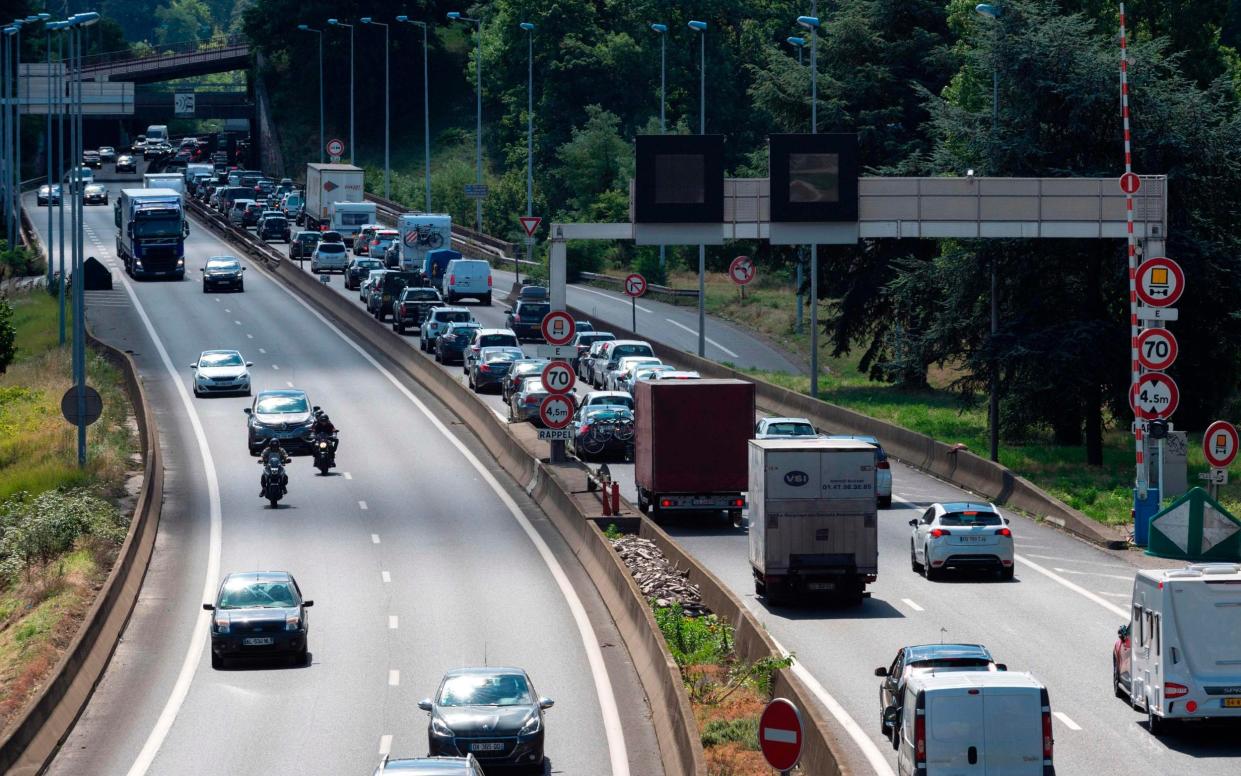Ask drivers to cut their motorway speed to beat energy crisis, says Brussels

Brussels has told European Union countries that they should consider telling drivers to cut their motorway speed in the battle to ditch Russian fossil fuel.
The European Commission says saving energy is the “quickest way” to tackle the energy crisis.
It has published a list of changes in behaviour which it argues could cut oil and gas demand by 5pc.
Asking drivers to go more slowly on the motorway could save around eight million tonnes of oil equivalent a year, it argues, while another seven million tonnes could be saved by getting people out of their cars and onto trains or public transport.
Meanwhile, the Commission estimates that turning down heating, insulation and servicing boilers could save around 10 billion cubic metres of gas, according to its calculations.
The Commission is encouraging member states to “start specific communication campaigns targeting households and industry,” on how to save energy.
It is among a wide-ranging package of measures set out by the Commission on Wednesday as it tries to transform its energy system to cut dependence on Moscow.
The EU has typically bought about 40pc of its gas and 25pc of its oil from Russia.
This dependency has hobbled its response to Russia’s attack on Ukraine and provided the Kremlin with a vital source of funding.
As well as wanting to cut off funding to Moscow, Europe is also increasingly concerned that Moscow could cut off supplies in retaliation over sanctions.
Other measures set out on Wednesday include encouraging member states to cut VAT rates on insulation.
It also plans to consider a joint purchasing system to negotiate bulk gas purchases on behalf of member states.
Targets for renewable energy are set to rise from 40pc to 45pc, with a legal obligation to install solar panels on new buildings.
The European Commission said the plan marks its “response to the hardships and global energy market disruption caused by Russia's invasion of Ukraine.”
It said: “There is a double urgency to transform Europe's energy system: ending the EU's dependence on Russian fossil fuels, which are used as an economic and political weapon and cost European taxpayers nearly €100 billion per year, and tackling the climate crisis.
“By acting as a Union, Europe can phase out its dependency on Russian fossil fuels faster.”

 Yahoo News
Yahoo News 
